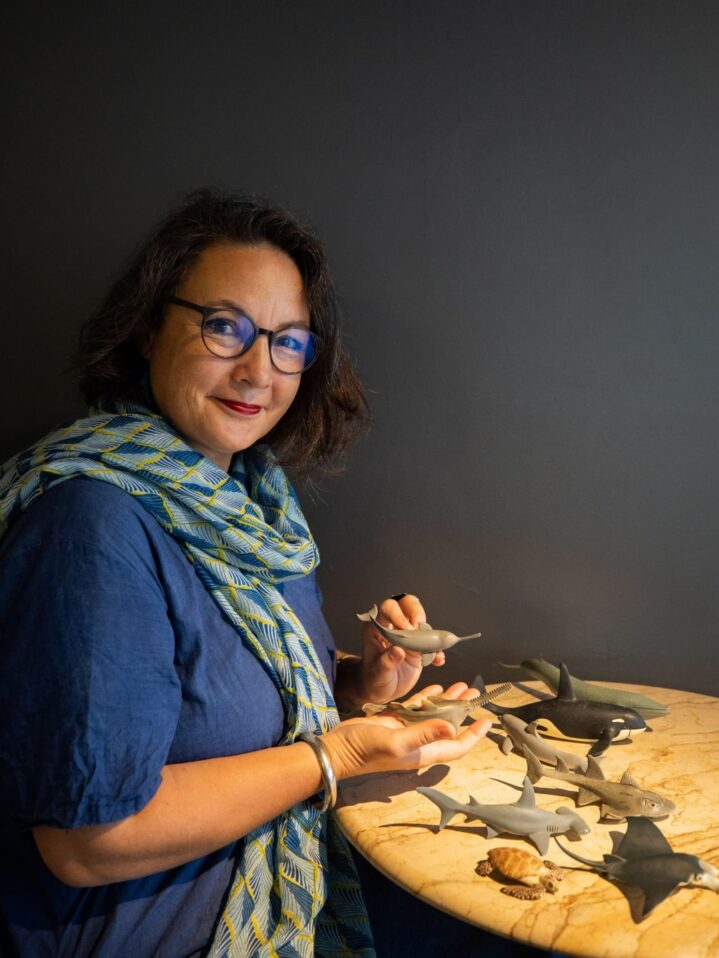We welcome you, Elisabeth
Elisabeth Fahrni Mansur is a marine conservation practitioner who works with government and non-government partners on effective management strategies for connecting wildlife conservation with sustainable resource use, including to support communities directly affected by climate change, biodiversity loss, and conservation management regulations. Her formal training as educator, teacher’s trainer and school principal in Switzerland, and her experience as CEO of a renowned nature tourism company in Bangladesh, benefit her in facilitating inclusive and collaborative processes for science-based species and habitat protection. Elisabeth is a Kinship Conservation Fellow trained in market-based tools for conservation and leadership, a certified facilitator for Species Conservation Planning, and recipient of the Pathfinder award in recognition of notable contributions to wildlife conservation and sustainability in Bangladesh. She co-founded the Wildlife Conservation Society (WCS) Bangladesh country program, for which she managed the educational outreach and marine conservation programs. Elisabeth serves as the Indian Ocean Regional Vice-Chair of the IUCN SSC Shark Specialist Group and as technical advisor to the Bangladesh CITES Management Authority. Elisabeth is based in Khulna, Bangladesh.
Connecting minds, hearts, and hands through scientifically grounded, strategically planned educational outreach to create and sustain effective marine conservation solutions
Conservation management aims to safeguard a healthy ocean that continues to benefit us. It is part of our responsibilities as conservation practitioners to facilitate the collaborative development, implementation, and monitoring of conservation solutions. The active engagement of the communities, government agencies, businesses or enterprises and institutions impacting marine wildlife and the spaces they occupy is essential.
Educational outreach aims to empower people to be a part of conservation solutions by effectively communicating conservation science findings and resulting management recommendations. Building informed conservation constituencies and institutionalizing platforms that enable learning from each other, should be prioritized in conservation management, not just added as an afterthought. Meaningful connections need to be nurtured between all stakeholders and the ecosystems they depend on, for ensuring that sharks, rays, and other marine wildlife can continue to fulfill their respective roles throughout their lifecycles.
Informed by her experiences as a teacher, nature guide, CEO of a tour company, and manager of educational outreach and marine conservation programs, Elisabeth promotes strategically designed and locally tailored educational outreach interventions that go beyond conveying information. Her innovative traveling exhibitions brought about measurable changes in the knowledge and attitudes of remote coastal fishing communities as well as among national policy makers towards globally threatened dolphins, sharks, rays, and protected area regulations. The ‘Ocean Guardians’ radio programs reached as many as 1.8 million people across the coastal belt of Bangladesh, with training workshops and tools enabling hundreds of government officers to enforce laws and rules on shark and ray exploitation and trade by identifying and monitoring protected species.
By showcasing educational outreach strategies that incorporate multidisciplinary approaches, Elisabeth hopes to inspire the creation of innovative and effective educational outreach programs that connect the minds, hearts, and hands of ocean stakeholders and instill pride about their role in safeguarding a healthy ocean.

